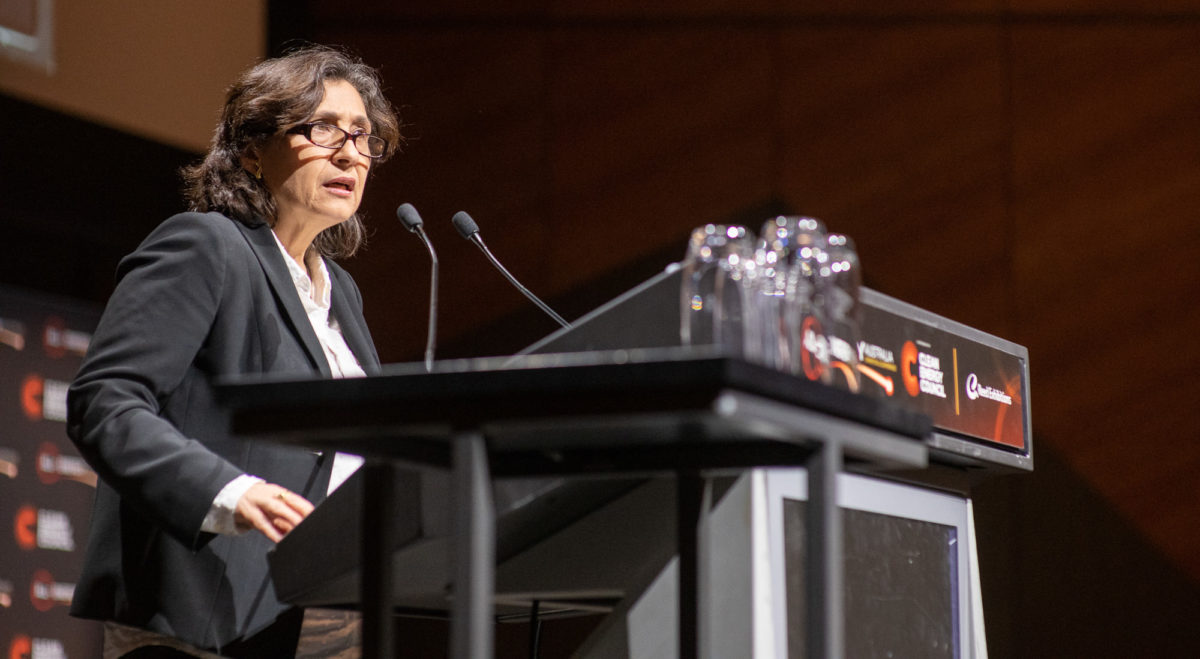Victoria’s Solar Homes program returned on Monday with thousands of new rooftop solar, battery and hot water system rebates, as well as solar interest free loans. The revamped scheme is accompanied by a more stringent auditing program and other measures to optimize the rollout, and the industry is keen to get a ‘safety first’ message across, urging consumers to do their research and check installer IDs.
“We have heard of solar batteries exploding, or causing electrical systems to fail, because of incorrect installation,” says Alex Newman, Executive Officer at Future Energy Skills (FES), a Victoria-based not-for-profit industry led organization. “Installing solar batteries is not the same as installing rooftop solar panels, and even then, many electricians don’t have the right qualifications. We want Victorians to use clean energy, but it’s important all installations are done safely and not by ‘cowboy’ operators attracted by the rebate.”
In 2019-20, there will be 1,000 rebates of up to $4,838 for a solar battery system, including 200 battery rebates available from 1 July, 400 from 1 November and 400 from 1 March. On the back of a growing number of home battery schemes being integrated into state and territory energy policies, Australia is tipped to lead the world in residential battery uptake this year with demand set to triple to over 70,000 systems. However, according to the Solar Victoria live tally, the interest in battery rebates appears to be lagging behind that in solar PV. Since Monday, 15 of 200 rebates for home batteries have been approved, while solar PV rebates went gangbuster with only 708 of 3,333 left for this month since Monday morning.
Measures against shonky solar
Originally oversubscibed and temporarily halted, Victoria’s Solar Homes second phase will be backed up by a more stringent auditing program involving post-installation inspections carried out by Solar Victoria. This measure builds on the government’s decision to introduce safety and industry accreditation requirements for installers and solar retailers. According to Solar Victoria, the Clean Energy Council (CEC) had rejected 23 applications for its approved retailer list, with most already reapplying to ensure they meet the high standards.
“We’re holding solar retailers to the highest standards. Victorians want to be assured solar retailers will adhere to all legislation and regulations, and that sales representatives will act ethically, and honestly,” Solar Victoria Acting CEO, Jonathan Leake said, noting Solar Victoria was on the lookout for dodgy behaviour by solar salespeople and installers, referring them to Consumer Affairs Victoria and the CEC.
The Clean Energy Council (CEC) also accredits individuals for the design and installation of solar batteries, ensuring they are trained and qualified to the Australian standard. “Victorians need to ask for an installer’s Clean Energy Council accreditation ID when they first meet them, which will show whether they hold the battery storage endorsement,” says Newman of FES. “In fact, households are only eligible for the rebate if the solar batteries are installed by Clean Energy Council accredited installers, using Solar Victoria approved products.”
According to a recent survey with a sample size of 69 conducted by FES, a majority of electricians believe up to 60% of solar batteries are installed incorrectly or unsafely by unaccredited and untrained electricians. To address such issues, the Australian energy industry has convened to create a new training and qualification pilot program, the New Energy Technology Systems (NETS) course. The Government funded training course, which involves a consortia of industry leading organizations, including Energy Safe Victoria, the CEC, Smart Energy Council and Country Fire Association, aims to bridge the skills gap faced by many electricians in solar battery design and installation.
The NETS website, Know Your Battery, aims to educate and inform consumers about solar batteries, and arms them with the right questions to ask their installer. It is part of a widespread campaign to prioritise the safety of solar battery installation.
This content is protected by copyright and may not be reused. If you want to cooperate with us and would like to reuse some of our content, please contact: editors@pv-magazine.com.









By submitting this form you agree to pv magazine using your data for the purposes of publishing your comment.
Your personal data will only be disclosed or otherwise transmitted to third parties for the purposes of spam filtering or if this is necessary for technical maintenance of the website. Any other transfer to third parties will not take place unless this is justified on the basis of applicable data protection regulations or if pv magazine is legally obliged to do so.
You may revoke this consent at any time with effect for the future, in which case your personal data will be deleted immediately. Otherwise, your data will be deleted if pv magazine has processed your request or the purpose of data storage is fulfilled.
Further information on data privacy can be found in our Data Protection Policy.